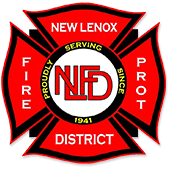| With the cold weather arriving, there have been several chimney fires in our area over the past couple of weeks. Make sure to have your chimney cleaned and inspected before starting a fire in your fireplace. If you hear loud cracking or popping noises, see dense smoke or notice an intense, hot smell coming from your chimney, call 911 immediately.
Here are some great tips on how to prevent a fire in your chimney:
• Have your chimney cleaned annually by a Certified Chimney Sweep. Dirty chimneys can cause chimney fires.
• Have your chimney inspected annually even if you don’t use your chimney often. A chimney inspection can help prevent carbon monoxide and chimney fires and can identify potential system issues to address before they become dangerous or costly.
• Ensure there are no prior damages to your chimney that may impact its ability to work safely.
• Be sure to properly dispose of ashes from chimneys and stoves.
• Be sure that the damper of the chimney is open before lighting a fire.
• Use a fireplace screen to prevent flying sparks and embers from falling out onto the floor.
• Install and maintain smoke alarms and carbon monoxide detectors.
Signs of a chimney damaged by a chimney fire:
• “Puffy” or “honey combed” creosote
• Warped metal of the damper, metal smoke chamber connector pipe or factory-built metal chimney
• Cracked or collapsed flue tiles, or tiles with large chunks missing
• Discolored and/or distorted rain cap
• Heat-damaged TV antenna attached to the chimney
• Creosote flakes and pieces found on the roof or ground
• Roofing material damaged from hot creosote
• Cracks in exterior masonry
• Evidence of smoke escaping through mortar joints of masonry or tile liners
Operating a chimney that has previously experienced a fire is a safety risk. If you suspect that your chimney has been impacted by fire, call a certified sweep to assess damages and make recommendations for repairs to ensure your chimney is safe. |

